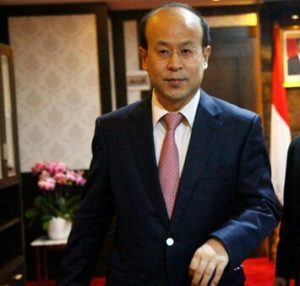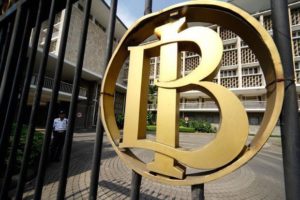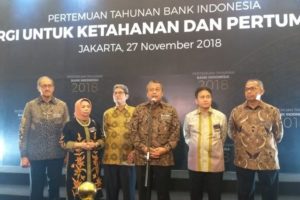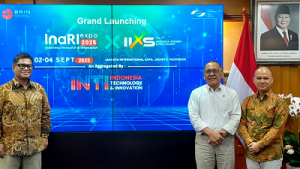
Bank Indonesia (BI) Agus Martowardojo talks to reporters after a meeting with Commission XI House of Representatives." width="300" height="171" /> Governor of Bank Indonesia (BI) Agus Martowardojo talks to reporters after a meeting with Commission XI House of Representatives.
Jakarta, 18 Rajab 1437/26 April 2016 (MINA) – Bank Indonesia (BI), the Indonesian central bank, has forecast that the country can increase its revenue by Rp45.7 trillion if it imposes a tax amnesty and thus helps in repatriation of Rp560 trillion worth of funds that Indonesians have stashed up in foreign countries.
“If the tax amnesty is followed with an improvement in the countrys taxation and administrative systems, it will increase the ratio of tax to Gross Domestic Product (GDP),” BI Governor Agus Martowardojo said here on Monday.
Speaking at a working meeting with Commission XI on financial and banking affairs of the House of Representatives (DPR), the BI governor said the potential revenue forecast is based on the Global Financial Integrity data for 2015, Antara was quoted by Mi’raj Islamic News Agency (MINA) as reporting.
The Global Financial Integrity 2015 data showed funds belonging to Indonesians stashed abroad totaled Rp3,147 trillion.
Also Read: Saudi Arabia Wins Bid to Host World Expo 2030
Of these, only about 60 percent could be pardoned based on the tax amnesty scheme. The remaining 40 percent could not receive the tax amnesty facility because the funds were gathered through illegal sources such as corruption, narcotics trade and human trafficking.
In the meantime, the Association of Indonesian Employers (Apindo) has asked the government to focus on settling the tax amnesty issue, which is still before the House of Representatives in the form of a draft law so that it can be immediately implemented.
“It is time for the government to concentrate on resolving the issue because, according to us, it is very important,” Apindos General Chairman, Haryadi Sukamdani, said after a discussion at the office of the Coordinating Minister for Economic Affairs recently.
He said it was time for tax payers to open up about their wealth, especially abroad, in the form of cash, shares or other assets.
Also Read: 148 Products from Indonesia Promoted at Sarawat Superstore Jeddah
Even if the assets are not withdrawn, at least the government can calculate and record the value of all these assets of the tax payers, he said.
“For us, what is important is their participation. They must be convinced and must be made to feel that they are not driven into a batman trap,” he said.
He also underlined the importance of the current momentum to settle the tax amnesty issue following the “Panama Papers” leakage that have disclosed the ways in which thousands of individuals and companies avoid tax.
Although the modus operandi of setting up fictitious companies has been used by some individuals figuring in the Panama Papers to keep their wealth, suspicion remains that the funds may possibly be used to fund illegal activities, such as narcotic drugs, arms business and others.
Also Read: Packaging Industry Supports Halal Ecosystem
“Basically, they do not want to have their wealth known. In such cases, Apindo cannot do anything,” he said.
The Deputy Chairman of the National Economic and Industrial Committee (KEIN), Arif Budimanta, proposed that the government should use the Panama Papers as one of its sources of information.
“Indeed, it may not be used as a main reference but at least it will strengthen the governments case or can be used to compare it with the data that the government has,” he said.
He added that the data could also be used to increase the potential tax income from ignorant tax payers who had kept their wealth abroad.
Also Read: Indonesia-Japan Agree on Energy Transition Cooperation
Indonesias Finance Minister, Bambang Brodjonegoro, has assured that the data used by the Directorate General of Tax to value the assets of tax payers abroad did not come from the Panama Papers. (T/R07/R01)
Mi’raj Islamic News Agency (MINA)
Also Read: Dubai Expo 2020 Holds Special Event for Palestine

































 Mina Indonesia
Mina Indonesia Mina Arabic
Mina Arabic